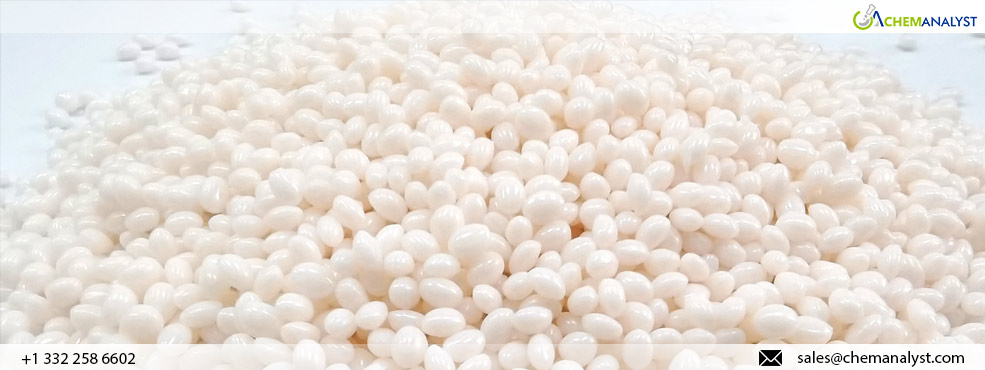Welcome To ChemAnalyst

Marseille (France): During the first week of June 2024, Polybutylene Adipate Terephthalate (PBAT) prices in France remained stable at USD 2069 per metric ton, reflecting a balanced market scenario. This stability was the result of various factors contributing to a well-managed supply and demand environment. The European PBAT market maintained steady production costs, supported by consistent prices of key raw materials such as adipic acid and purified terephthalic acid. These factors ensured that PBAT manufacturers in France experienced predictable production expenses throughout early June. Additionally, stable energy costs, with natural gas as a significant energy source for production, further contributed to price stability in PBAT.
Furthermore, as of June 7, 2024, the EU LNG benchmark was set at 0.69 euros per megawatt hour, enhancing transparency in fuel pricing. Introduced in March 2023, this benchmark is indexed against the Dutch TTF gas hub price, which experienced lower-than-anticipated prices in the winter of 2023/24 due to milder temperatures, reduced heating demand, and maintained ample reserves for suppliers.
Demand for PBAT in Europe during June exhibited moderate dynamics across different sectors. While demand from industries utilizing PBAT in packaging and agriculture sectors showed variability, overall demand remained relatively stable. The packaging sector, driven by regulatory compliance and increasing consumer preference for eco-friendly products, sustained consistent demand for PBAT. Similarly, moderate seasonal demand fluctuations were observed in the agriculture sector, particularly for PBAT mulch films.
Innovation in sustainable packaging solutions also marked the period, with BASF introducing a new biomass-balanced version of Ecoflex. This biopolymer innovation aimed to reduce reliance on fossil resources by incorporating renewable feedstocks derived from organic waste and residual biomass. Marcel Philipp Barth, head of global business management for Biopolymers at BASF, highlighted the company's commitment to supporting the circular economy through reduced fossil resource usage and lower Product Carbon Footprint (PCF).
In conclusion, the first week of June 2024 portrayed a stable pricing environment for PBAT in France, underpinned by balanced market conditions, steady production costs, and ongoing innovations in sustainable biopolymers. This period reflects the resilience of the PBAT industry amidst evolving regulatory landscapes and consumer preferences for environmentally friendly products. Stakeholders in the polymer sector will continue to monitor these factors closely to navigate potential shifts in supply and demand, aiming to sustain market stability and promote sustainable practices in the future.
Looking ahead, the forecasted pricing trend for PBAT in France suggests stability in June and July, with a projected increase on monthly basis. Factors such as sustained demand from the packaging sector and innovations in sustainable materials are expected to support price stability or potential increases. However, fluctuations in key feedstock prices like adipic acid or production capacity due to maintenance activities could influence pricing dynamics in the coming months.
We use cookies to deliver the best possible experience on our website. To learn more, visit our Privacy Policy. By continuing to use this site or by closing this box, you consent to our use of cookies. More info.
